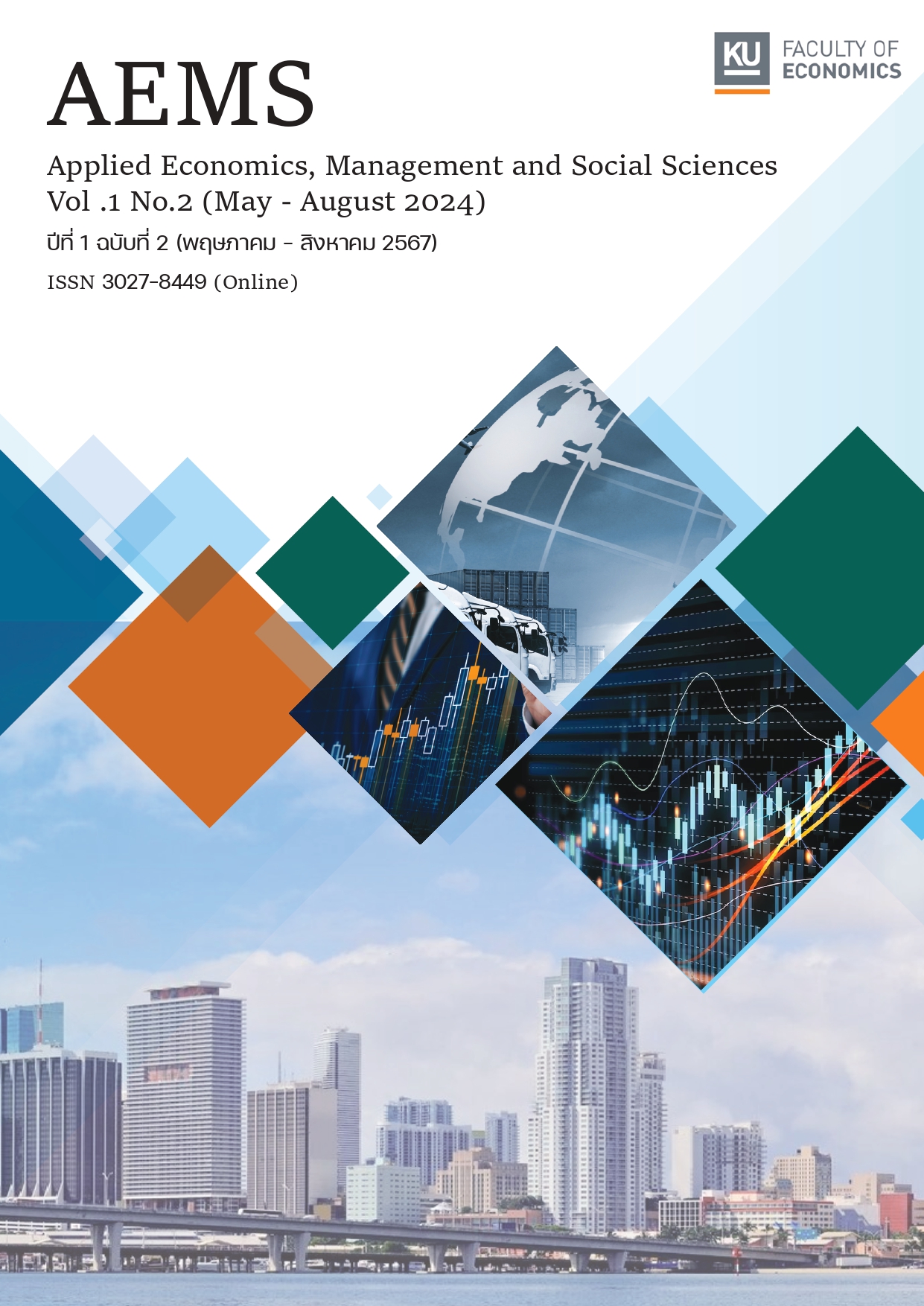Waste Management Approaches: A Case Study of Communities in Khon Kaen Municipality
Main Article Content
Abstract
This research article aims to study 1) the development approaches for waste management in relation to sustainable waste management, and 2) the development of waste management in conjunction with the 4 M management framework. This study employs a qualitative research methodology, collecting data through in-depth interviews with key informants, including provincial executives and local government organizations. The findings reveal that 1) the sustainable waste management development approaches are as follows: (1) Stakeholder involvement: Waste management in communities must be efficient and comprehensive, with agencies supporting waste separation at the source through small municipality policies within larger municipalities. This ensures that communities have a scientifically sound management system and promotes consumer participation in waste separation and the return of packaging. The Khon Kaen Municipality must provide adequate space to accommodate the volume of waste. (2) Components of the waste management system: Household waste management should involve community consultations to address waste overflow issues, while the organic waste reduction project can decrease organic waste and create value from selling compost. (3) Waste management factors: The funeral fund system that converts waste into merit encourages households to separate waste types and sell them for income, thereby reducing the amount of waste that needs to be disposed of. 2) The development approaches for waste management with the 4 M management framework include supporting local group formations and establishing waste disposal centers in every province, along with community competitions for effective waste management to raise awareness and knowledge among the public and relevant agencies regarding efficient waste management practices.
Article Details
References
กรมควบคุมมลพิษ. (2566). รายงานสถานการณ์มลพิษของประเทศไทย ปี 2566. สืบค้นจาก https://www.pcd.go.th/publication/32171/.
กรมควบคุมมลพิษ. (2566ข). แผนปฏิบัติการด้านการจัดการขยะของประเทศ ฉบับที่ 2 (พ.ศ. 2565-2570). สืบค้นจาก https://www.pcd.go.th/publication/28745/.
ดำรัสศิริ ศิลปะวัฒนานันท์ และชญาน์นันท์ เผ่าศรีเจริญ. (2559). การประเมินผลการจัดการโครงการโรงงานกำจัดขยะมูลฝอยขององค์การบริหารส่วนจังหวัดเชียงใหม่. วารสารมหาวิทยาลัยพายัพ, 26(1), 107–128.
เด่นดนัย ดวนสูง, พัชราภรณ์ทิลา, เกตนิภา คำดวง, ชลสิทธิ์ ปรึกไธสง, ปัทมาภรณ์ สุ่มมาตย์ และ อรณิชา โต้งกระโทก. (2566). การจัดการขยะ โดยศูนย์การเรียนรู้ชุมชนปลอดขยะ zero waste หมู่บ้านหัวถนน ตำบลพระลับ อำเภอเมือง จังหวัดขอนแก่น. Journal of Spatial Development and Policy, 1(3), 1-18.
ปราศิยฉัตร บุญจวง. (2563). กองทุนธนาคารขยะเพื่อชีวิตกับการให้สวัสดิการชุมชน กรณีศึกษา : หมู่บ้านบะแค ที่ได้รับการรางวัลซีโร่เวส (Zero Waste) อันดับที่ 1 ในเขตเทศบาลตำบลแวงใหญ่ อำเภอแวงใหญ่ จังหวัดขอนแก่น. (รัฐประศาสนศาสตรมหาบัณฑิต, มหาวิทยาลัยขอนแก่น).
มงคลกร ศรีวิชัย, ชายแดน พิรุณเดช, ธีระพงษ์ วงศ์สอน และจาตุรนต์ กาศมณี. (2557). การจัดการขยะมูลฝอยของชุมชน ในเขตพื้นที่องค์การบริหารส่วนตำบลเมืองพาน อำเภอพาน จังหวัดเชียงราย. วารสารการพัฒนาชุมชนและคุณภาพชีวิต, 2(3), 245–254.
ระพีพัฒน์ วงษ์ภักดี, กฤษณวงศ์ จันเติบ, อรนี ถะเกิงสุข, วราภรณ์ มนตรี, จุฑารัตน์ แสนบุญ และอุดม ชัยสุวรรณ. (2563). การบริหารจัดการขยะมูลฝอยของชุมชนบ้านสวัสดี ตำบลกลันทา อำเภอเมือง จังหวัดบุรีรัมย์. ปัญญา, 27(1), 59–68.
ศิโรรัตน์ งูตูล. (2560). มาตรการทางกฎหมายในการควบคุมมลพิษทางอากาศจากโรงไฟฟ้าขยะที่ใช้เทคโนโลยีเตาเผาขยะ. (นิติศาสตรมหาบัณฑิต, มหาวิทยาลัยธรรมศาสตร์).
อุมาวรรณ วาทกิจ และวรวิช โกวิทยากร. (2562). ผลกระทบของโรงงานแปรรูปขยะมูลฝอยเป็นพลังงานไฟฟ้า สถานีกำจัดขยะ เทศบาลนครขอนแก่น. Journal of Buddhist Education and Research, 5(2), 335-346.

